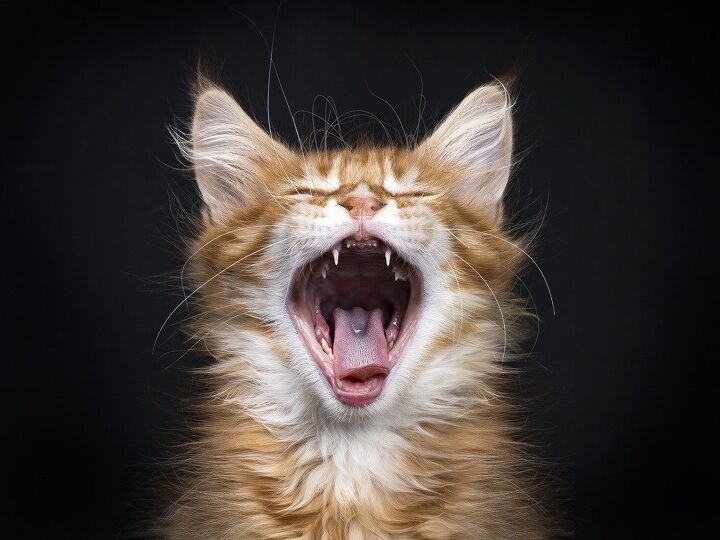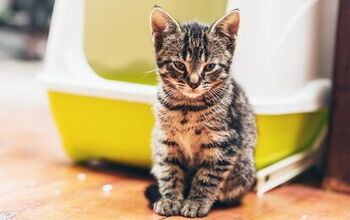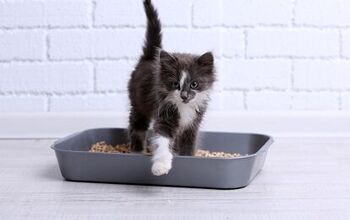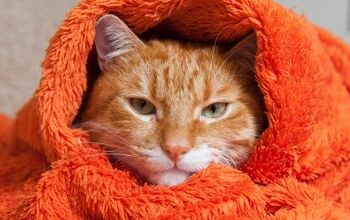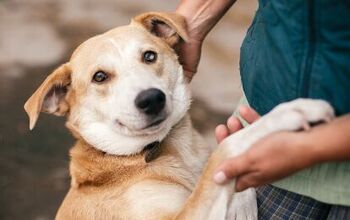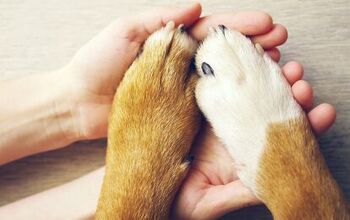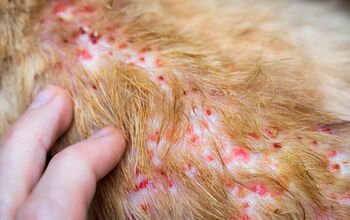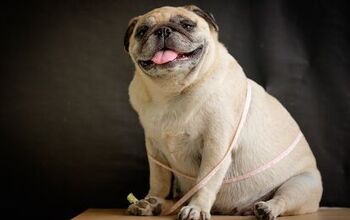Cat Vomiting Bile: A Cause for Concern?

If your cat is vomiting bile—the yellow-green liquid that the liver produces in order to aid digestion—you might be wondering if it’s normal or if you should take your pet to the vet. We’ve compiled a bit of information below to help you better understand what might be to blame when your kitty vomits bile, but it’s always a great idea to consult with your veterinarian for personalized guidance whenever you have questions about your cat’s symptoms.
Experts aren’t entirely sure if there’s an exact cause that leads to a cat vomiting up bile, but this symptom may develop when a kitty has gastrointestinal motility issues. Basically, the bile gets into the stomach even though it isn’t supposed to be there, so it ends up irritating the stomach, which results in the body getting rid of the bile through vomiting.
Related: Home Remedies for Cat Vomiting
Your vet can also examine your kitty to figure out if there is an underlying condition causing inflammation of the stomach or intestine that’s affecting motility.
You might notice that your cat vomits bile late at night or early in the morning, and it might happen right before it’s time for her to eat. This is more common in kitties that are only fed one time per day.
Related: Vomiting in Cats: When to Worry
In addition to the vomiting, there might also be other signs that your pet isn’t feeling well. For example, you might notice that your cat doesn’t have much of an appetite, and she might even be losing weight. There might be nausea, along with abdominal discomfort, and the intermittent vomiting of bile might become increasingly more common.
Dietary changes may be a good place to start if your cat is vomiting bile. Your vet might recommend feeding your kitty wet food, as well as foods that contain the right balance of nutrients, such as fiber and fat, in an effort to improve digestion.
Also, feeding smaller meals more frequently throughout the day might be a good idea to help reduce or eliminate the vomiting. Doing so could help prevent your pet’s stomach from being left empty for too long, and that may help improve motility as well.
Remember, your veterinarian can check your pet to figure out if there’s an underlying health condition that’s causing your pet to vomit bile. If that’s the case, treating the problem will be where you’ll start. But, if nothing serious is to blame, your vet might prescribe treatments that can help support your cat’s digestive health, such as medications that improve motility or medicines that help reduce the amount of acid that’s secreted.
Bottom line: your vet will be able to determine what medications and dietary changes, if any, would be appropriate for your unique kitty’s condition.
It’s wise to take vomiting, especially of bile, seriously. Whenever your cat is exhibiting symptoms that are worrisome, such as throwing up bile, it’s best to talk to your vet about what could be causing this problem, as well as what you can do to resolve it. That way, you can give your kitty what she needs to improve her digestion and feel better.

Lisa Selvaggio is a freelance writer and editor, and our resident cats-pert, with certifications in pet nutrition and pet first aid. She enjoys producing content that helps people understand animals better so they can give their pets a safe and happy home.
More by Lisa Selvaggio



